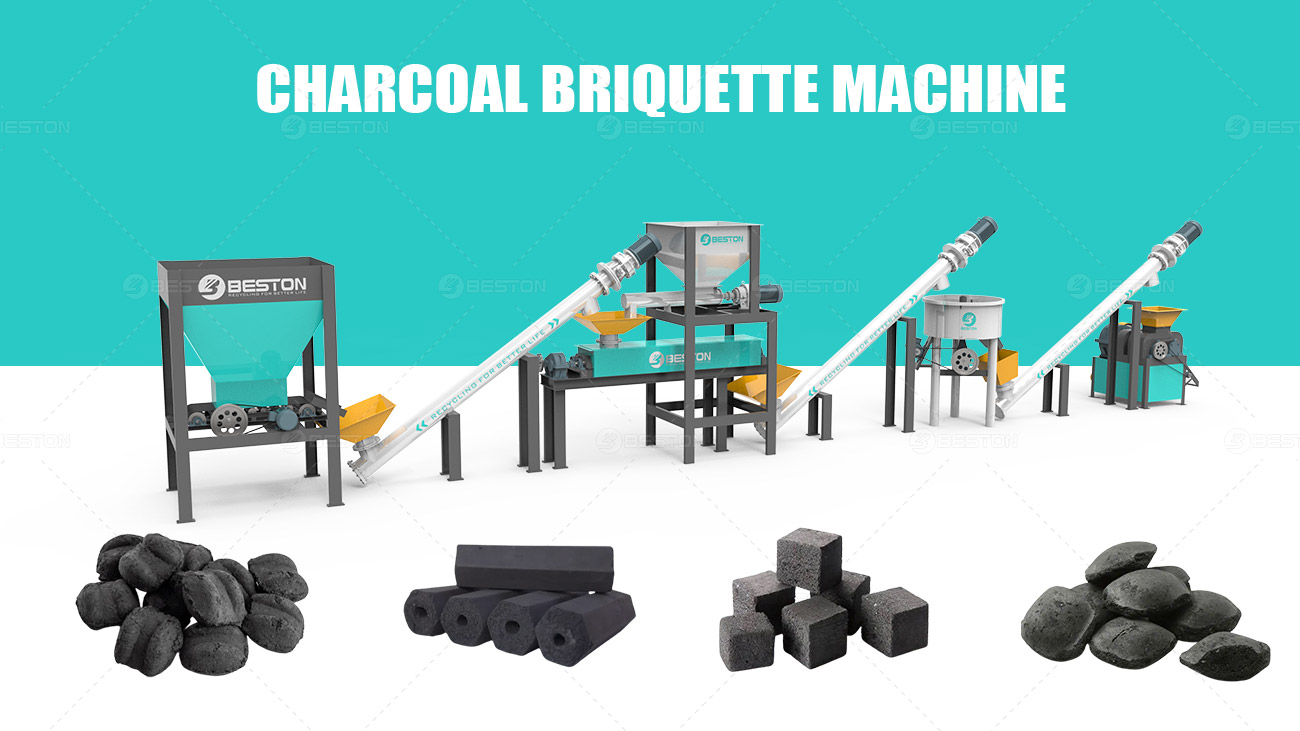Investing in a complete charcoal production line can be a smart decision for entrepreneurs and businesses looking to tap into the growing demand for sustainable energy solutions. With the right setup, you can convert various types of biomass waste into valuable products like biochar and charcoal briquettes, which are used in agriculture, industry, and households. However, selecting the appropriate equipment for your needs is crucial for maximizing efficiency and return on investment.
Step 1: Understand Your Raw Material
The first step in purchasing a charcoal production line is to identify the type of raw material you plan to process. Different materials require different processing techniques and equipment. For instance:
- Rice husk is an abundant by-product of rice production and can be efficiently processed using a rice husk charcoal machine. This machine is specifically designed to handle the small size and high silica content of rice husks, turning them into high-quality charcoal.
- Straw from crops like wheat, corn, and barley can be processed using a straw charcoal machine. These machines are equipped to handle larger, fibrous materials and convert them into biochar or charcoal suitable for use as fuel or soil amendment.
Understanding your raw material helps you choose the right equipment and ensures you get the best results from your investment.
Step 2: Choose the Right Biochar Pyrolysis Equipment
The heart of any charcoal production line is the biochar pyrolysis equipment. This machine converts organic materials like wood, rice husks, and straw into biochar by heating them in a low-oxygen environment. When choosing biochar pyrolysis equipment, consider factors such as:
- Processing Capacity: Choose equipment that matches the scale of your operations. For small businesses, a batch pyrolysis system may suffice, while larger enterprises might benefit from a continuous pyrolysis plant.
- Energy Efficiency: Look for equipment with advanced heat recovery systems, which can lower fuel consumption and reduce operating costs.
- Quality of Output: High-quality biochar pyrolysis equipment should produce uniform biochar with a high carbon content, which is ideal for agricultural applications.
Additionally, some equipment offers the flexibility to handle multiple feedstocks, allowing you to diversify your production and adapt to market demands.
Step 3: Invest in a Charcoal Briquetting Machine
Once you have produced biochar, you might want to compress it into more compact forms for easier storage, transportation, and use. This is where a charcoal briquetting machine comes into play. These machines compress loose charcoal or biochar powder into uniform briquettes, which are ideal for use in grilling, heating, and other applications.
When selecting a charcoal briquetting machine, consider:
- Pressure Mechanism: Different machines use varying pressure mechanisms (like hydraulic or mechanical presses) to create briquettes. Choose a machine that aligns with your production requirements.
- Briquette Shape and Size: Depending on your target market, you might need specific shapes and sizes of briquettes. Ensure that the machine you choose can produce the desired output.
- Production Capacity: Select a machine that matches your daily or weekly production needs to avoid bottlenecks in your production line.

Step 4: Evaluate the Compatibility of Different Machines
For a complete charcoal production line, it’s crucial that all machines are compatible with each other. The biochar pyrolysis equipment should seamlessly feed into the charcoal briquetting machine, and if you are using specialized machines like a rice husk charcoal machine or straw charcoal machine, they should be able to handle the initial processing effectively.
Ensure that the output size from the pyrolysis equipment matches the input requirements of the briquetting machine. Additionally, consider automation options that integrate the entire production process, reducing labor costs and increasing efficiency.
Step 5: Consider After-Sales Support and Warranty
Purchasing a complete charcoal production line is a significant investment, so after-sales support and warranty are critical considerations. Look for suppliers who offer comprehensive after-sales services, including installation, training, and maintenance. Equipment like biochar pyrolysis equipment and charcoal briquetting machines can experience wear and tear over time, so having access to spare parts and technical support is essential.
Recommendations for a Complete Charcoal Production Line
- Best Choice for Small Businesses: If you are running a small operation, consider a compact charcoal production line that includes a small-scale biochar pyrolysis equipment and a medium-capacity charcoal briquetting machine. You can also opt for a dedicated rice husk charcoal machine or straw charcoal machine based on your raw materials.
- Ideal for Large-Scale Production: For larger enterprises, a continuous pyrolysis plant paired with a high-capacity charcoal briquetting machine is recommended. These setups offer high throughput and efficiency, suitable for handling large volumes of biomass waste, including rice husks and straw.
- Sustainable and Energy-Efficient Solutions: Prioritize equipment that uses renewable energy or has high energy efficiency ratings. Look for pyrolysis equipment with advanced heat recovery systems and briquetting machines that minimize energy consumption during compression.
Conclusion
Purchasing a complete charcoal production line requires careful consideration of your raw materials, processing needs, and budget. By choosing the right combination of biochar pyrolysis equipment, charcoal briquetting machines, rice husk charcoal machines, and straw charcoal machines, you can establish a profitable and sustainable operation. Remember to evaluate compatibility, production capacity, and after-sales support to make the most of your investment. With the right equipment in place, you’ll be well-positioned to take advantage of the growing market for charcoal and biochar products.